Easy Word Problems Worksheets for Ages 3-8
44 filtered results
-
From - To
Discover engaging and accessible easy word problems worksheets designed for children ages 3-8! Our carefully crafted resources help young learners develop critical thinking and problem-solving skills in a fun and interactive way. Each worksheet is tailored to reinforce basic math concepts through relatable scenarios, encouraging children to apply their knowledge to real-world situations. Perfect for enhancing classroom activities or supporting at-home learning, these worksheets promote logical reasoning and boost confidence in young mathematicians. Explore a variety of topics and formats that make learning enjoyable, ensuring that every child can thrive as they tackle their math challenges with excitement!
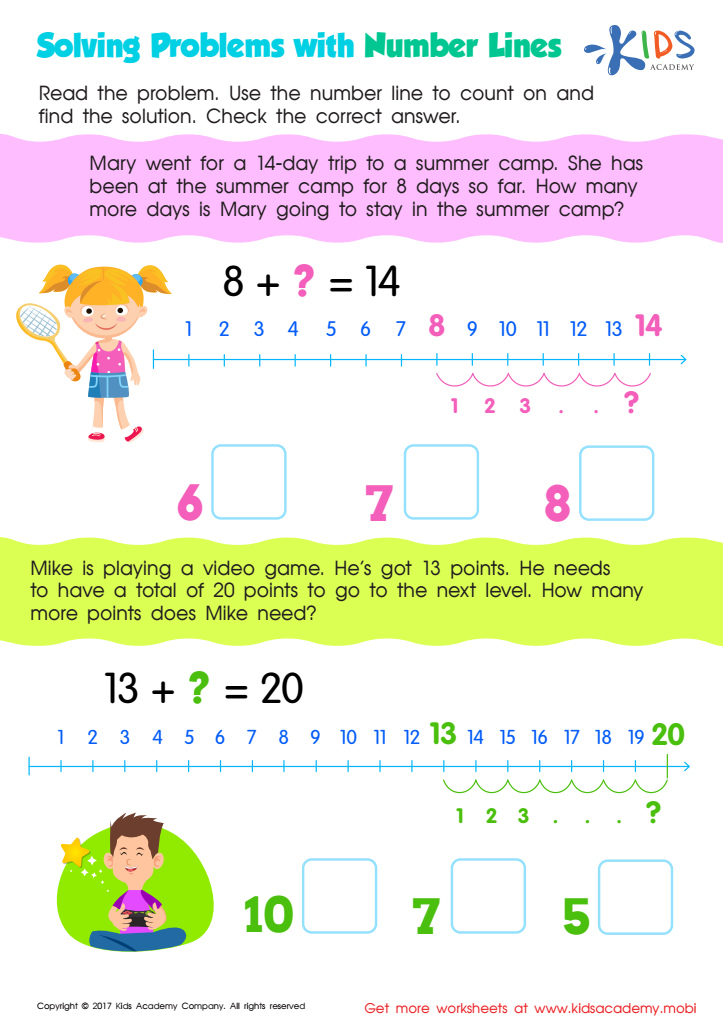

Solving Problems: Number Lines Worksheet
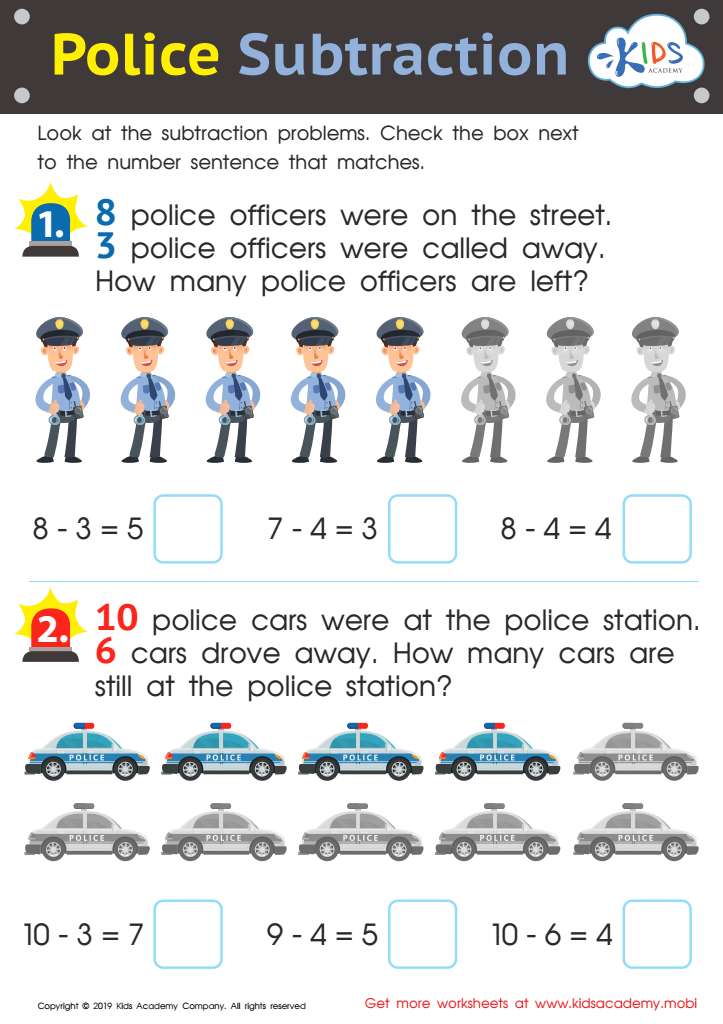

Police Subtraction Worksheet
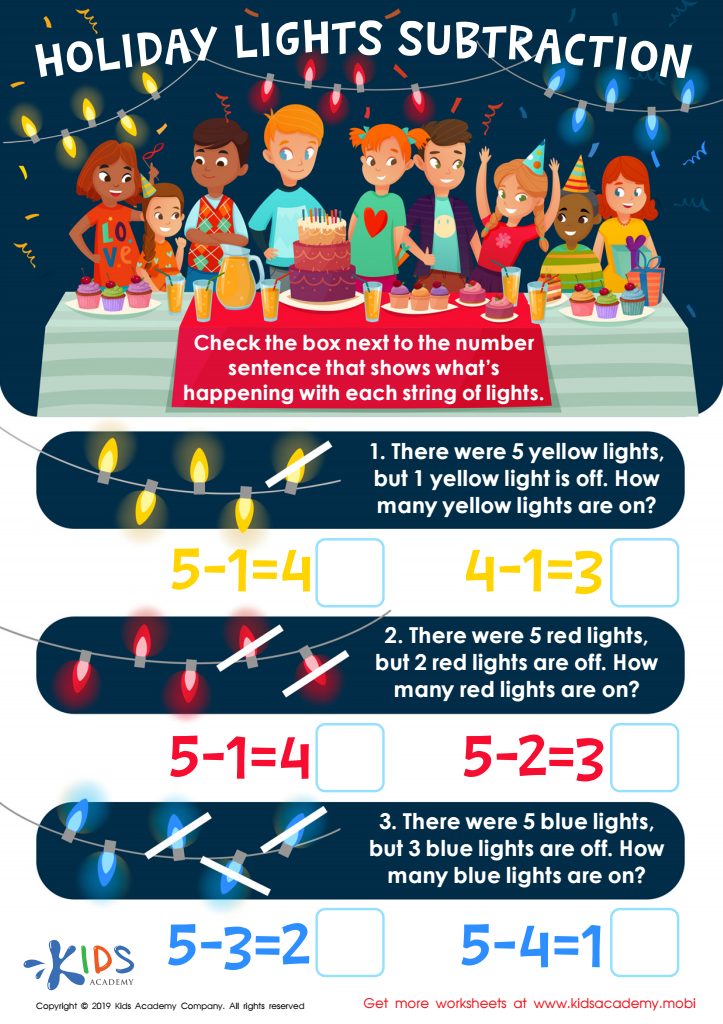

Holiday Lights Subtraction Worksheet
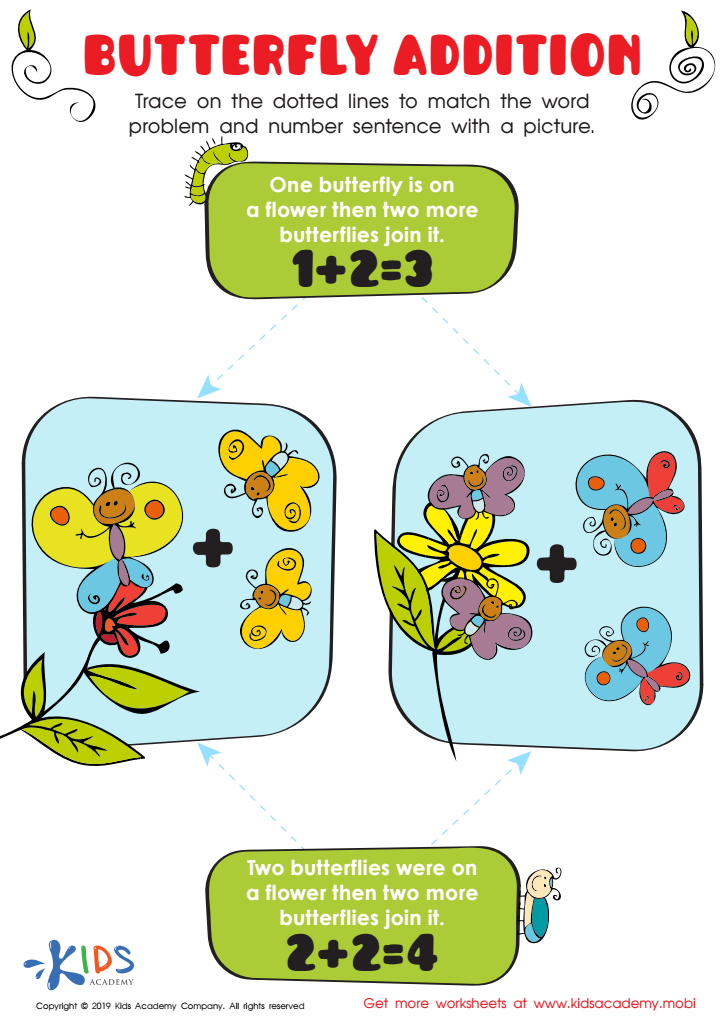

Butterfly Addition Worksheet
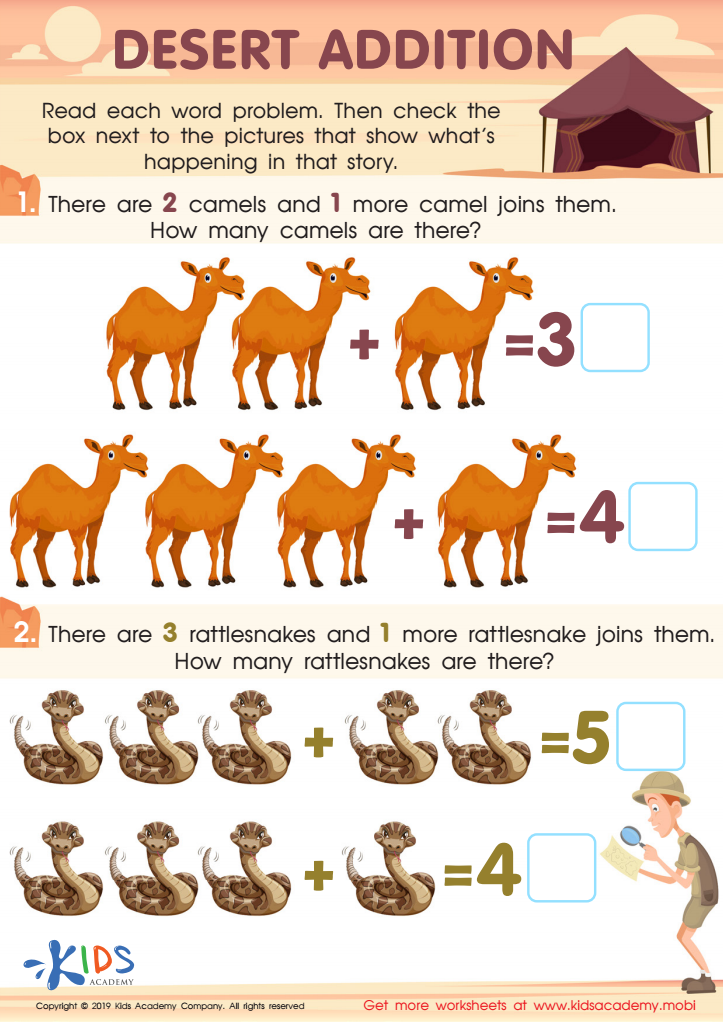

Desert Addition Worksheet
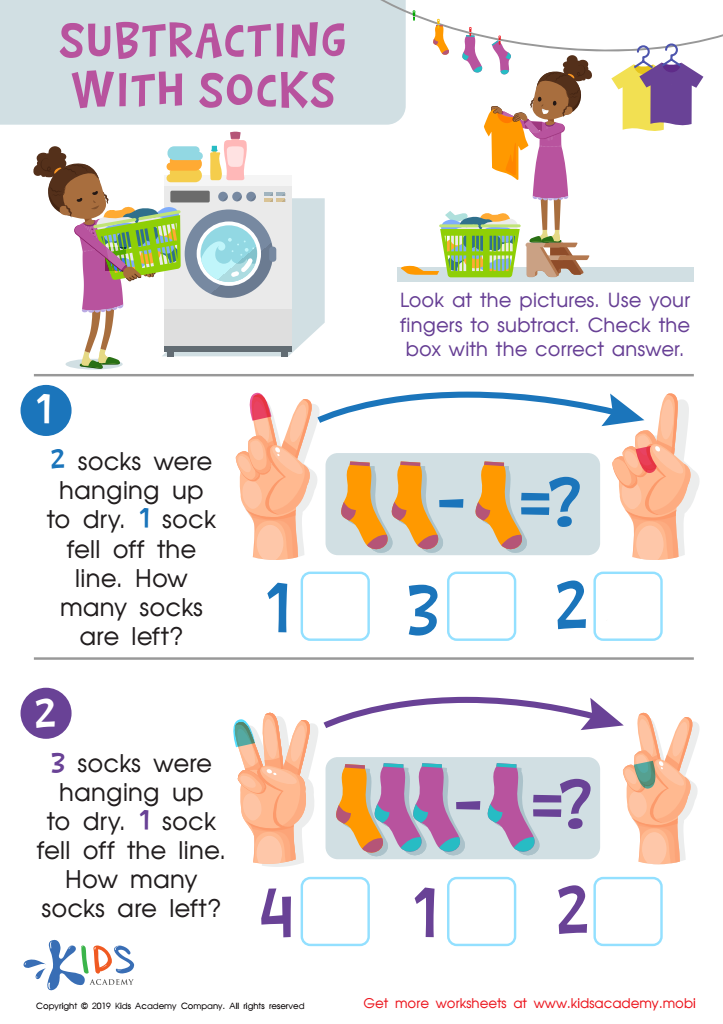

Subtracting Socks Worksheet
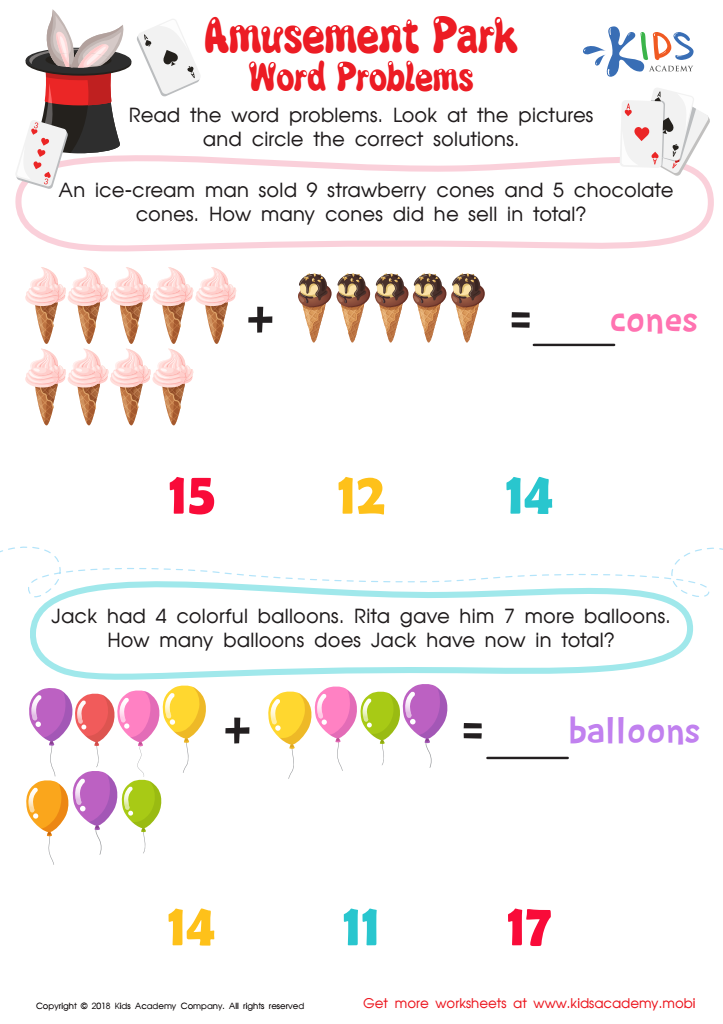

Amusement Park Word Problems Worksheet
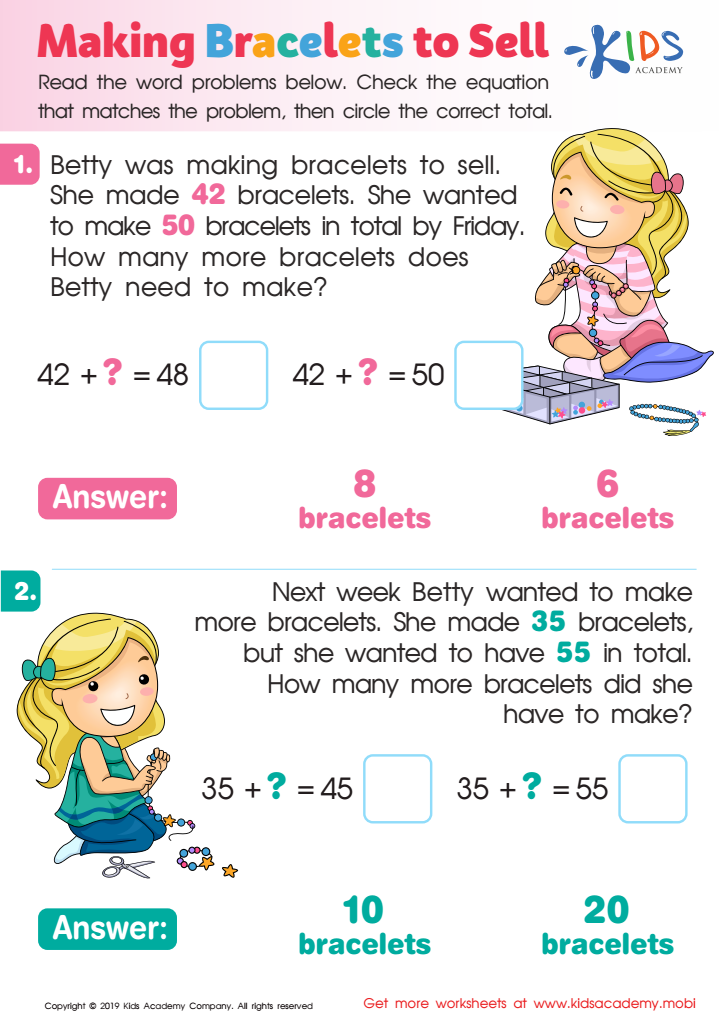

Making Bracelets to Sell Worksheet


Counting Seedlings Worksheet
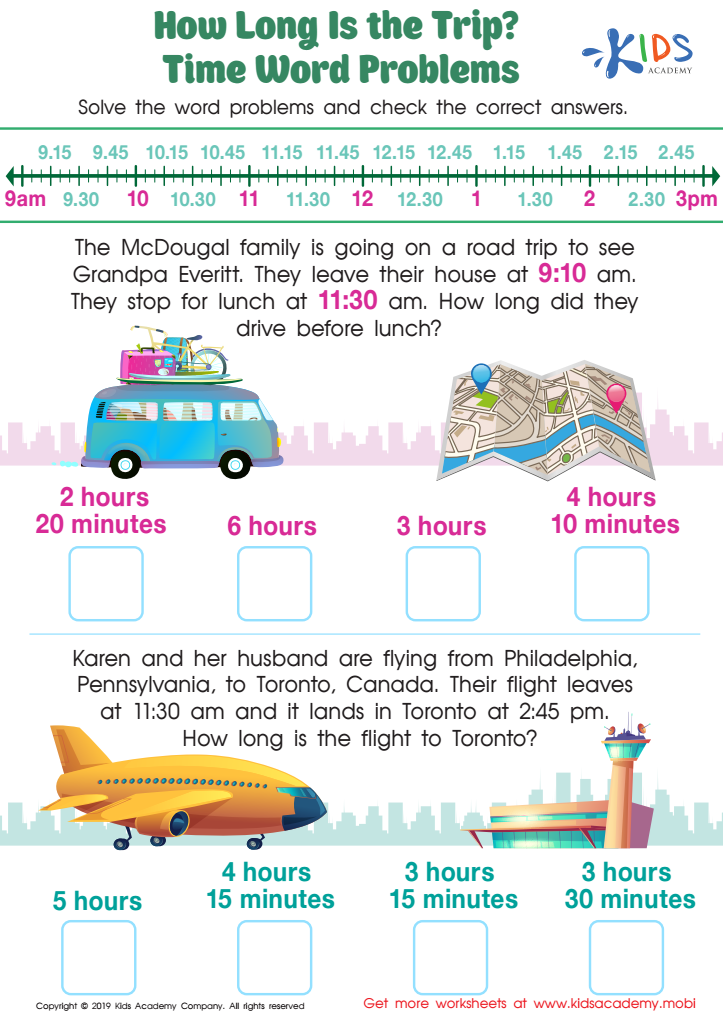

How long is the Trip? Time Word Problems Worksheet
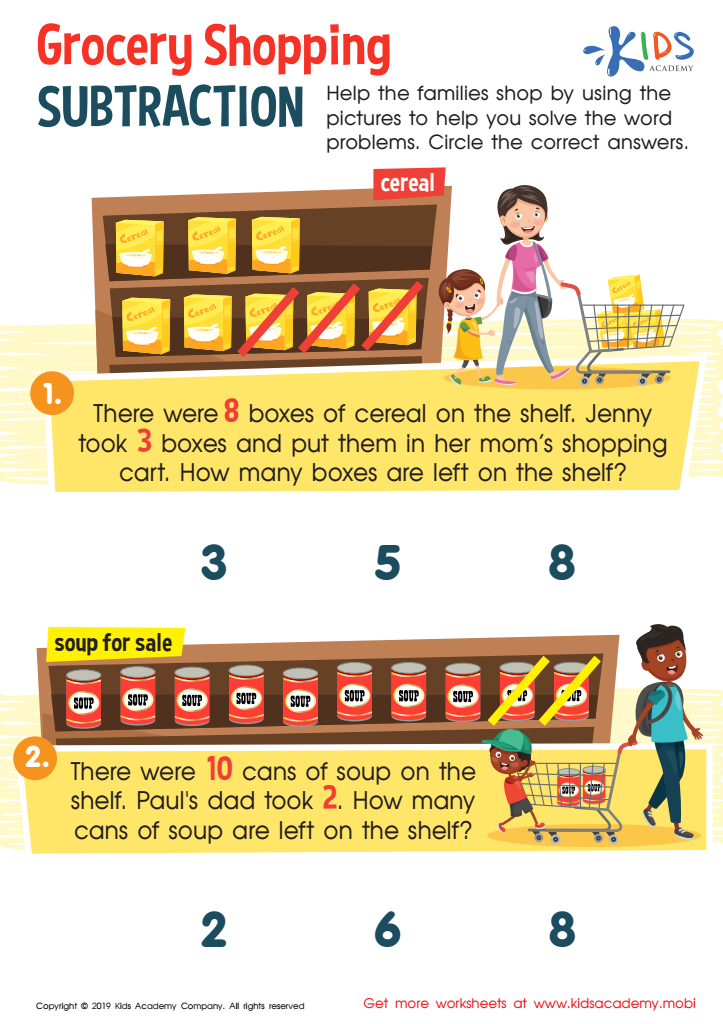

Grocery Shopping Subtraction Worksheet
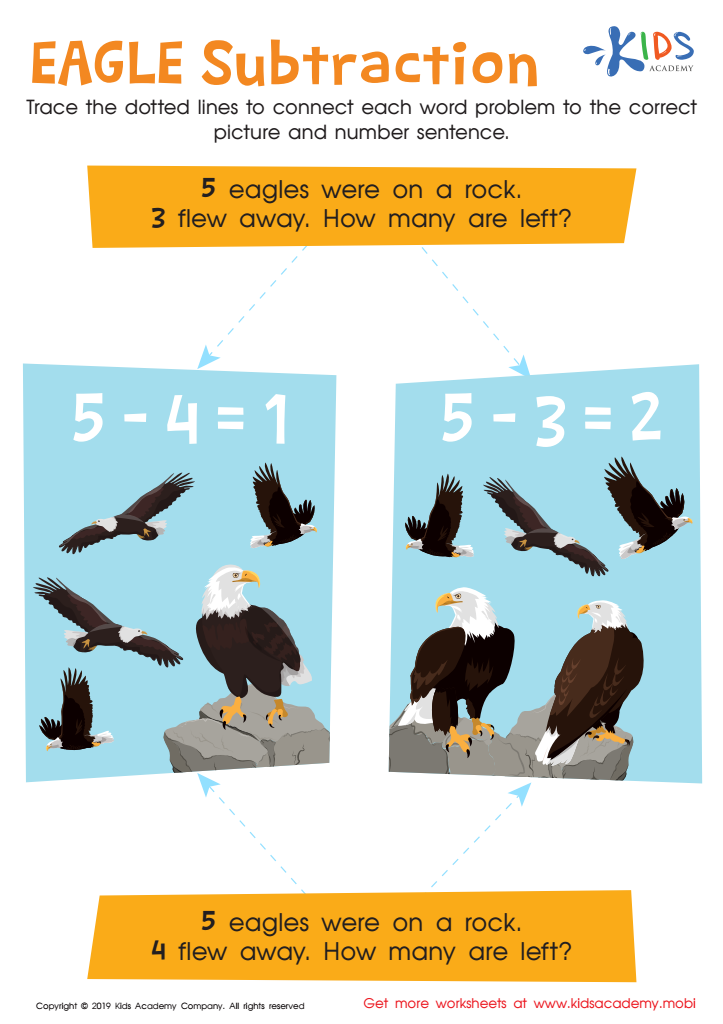

Eagle Subtraction Worksheet
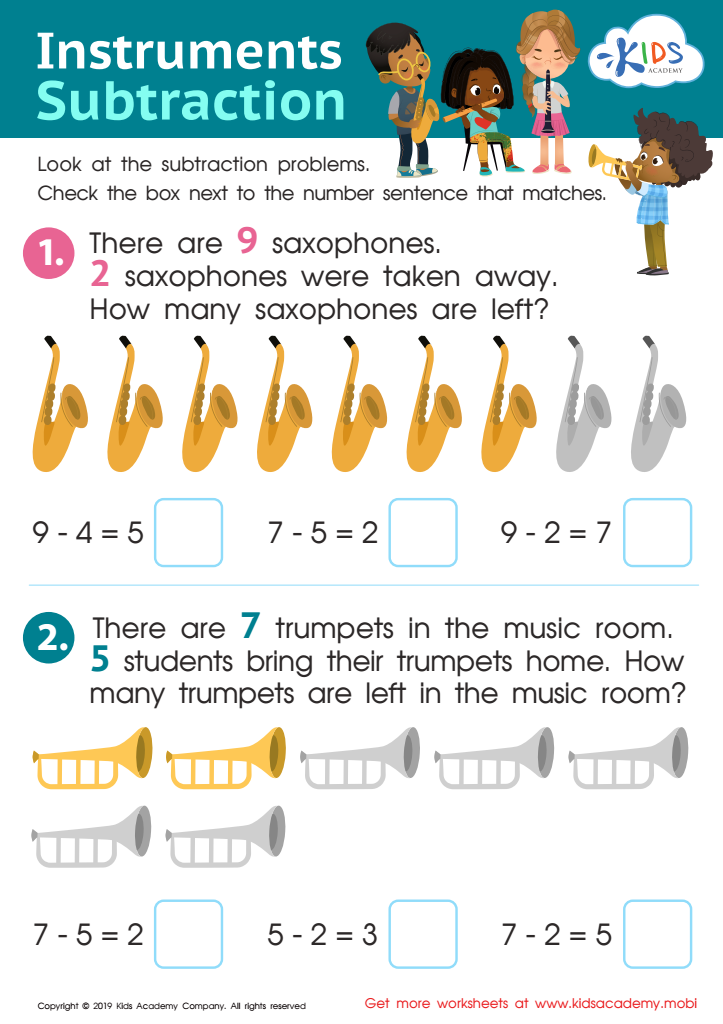

Instrument Subtraction Worksheet
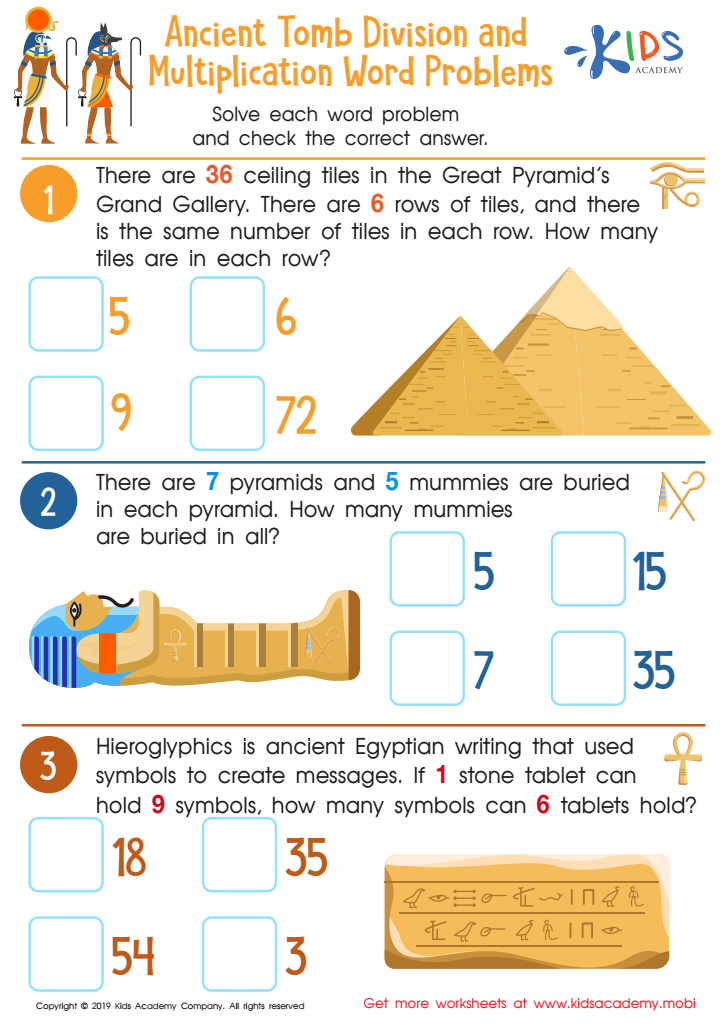

Ancient Tomb Division and Multiplication Word Problems Worksheet
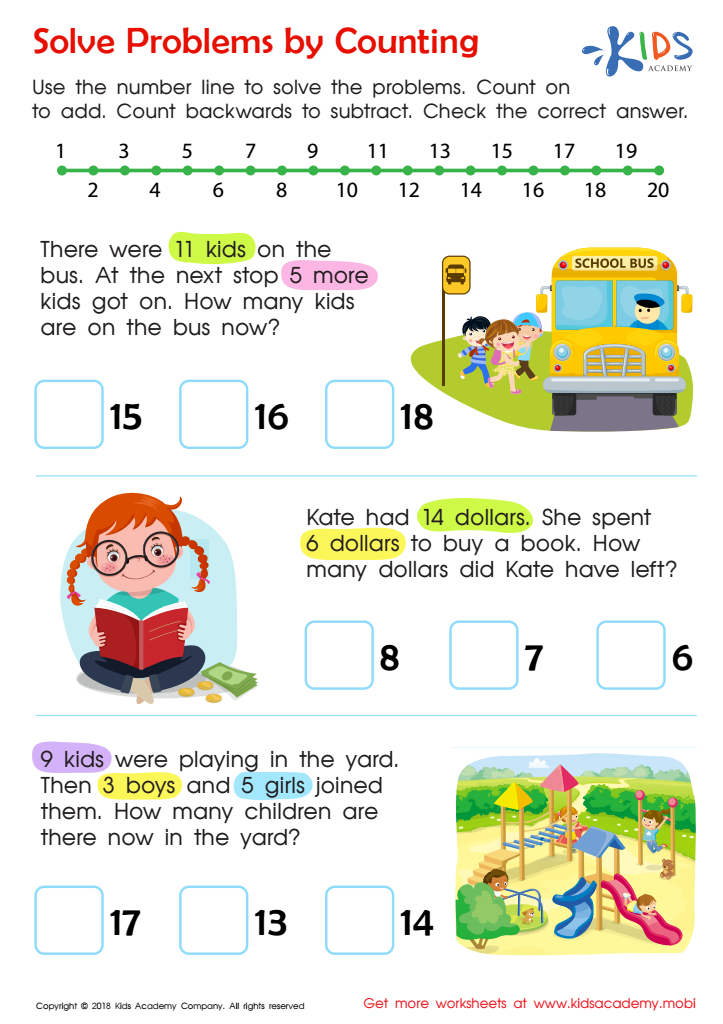

Solve Problems by Counting Worksheet
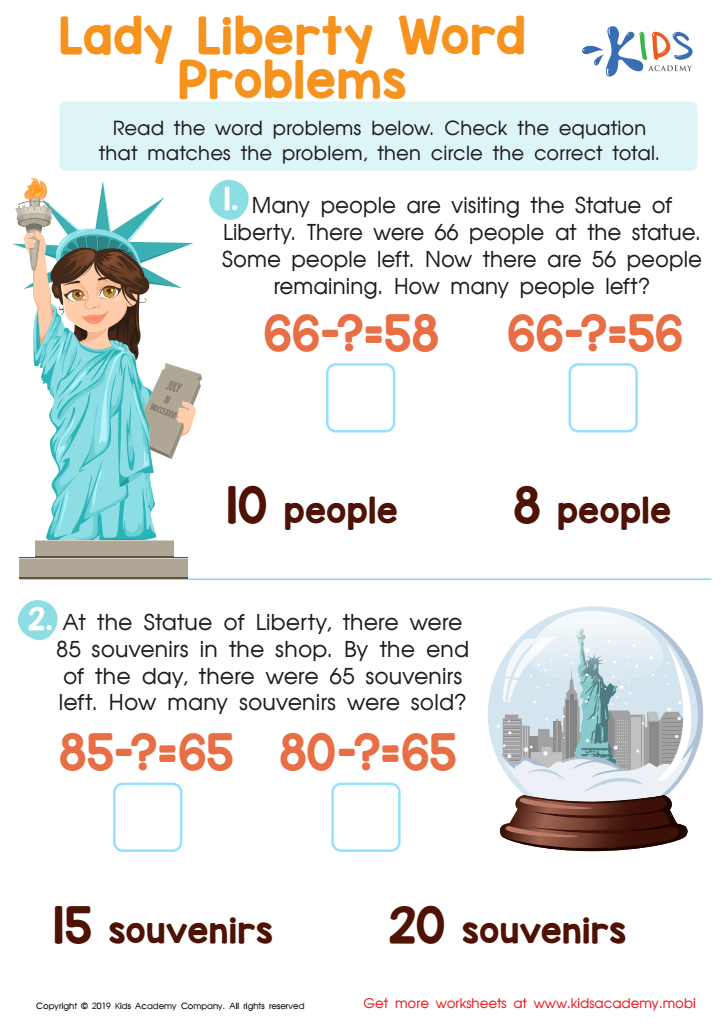

Lady Liberty Worksheet
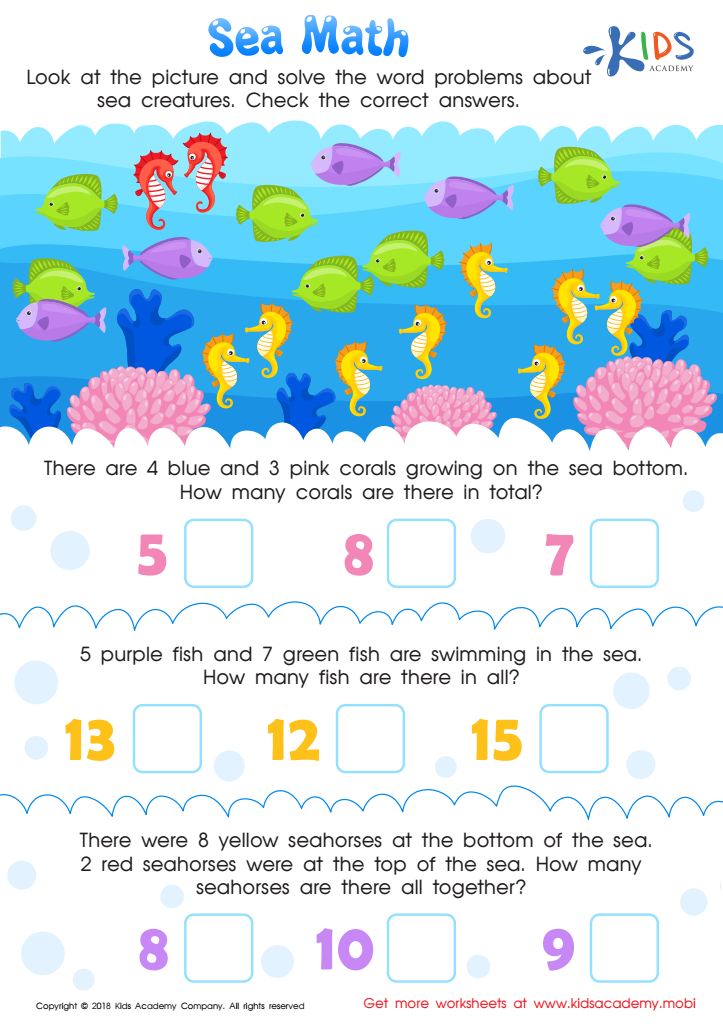

Sea Math Worksheet
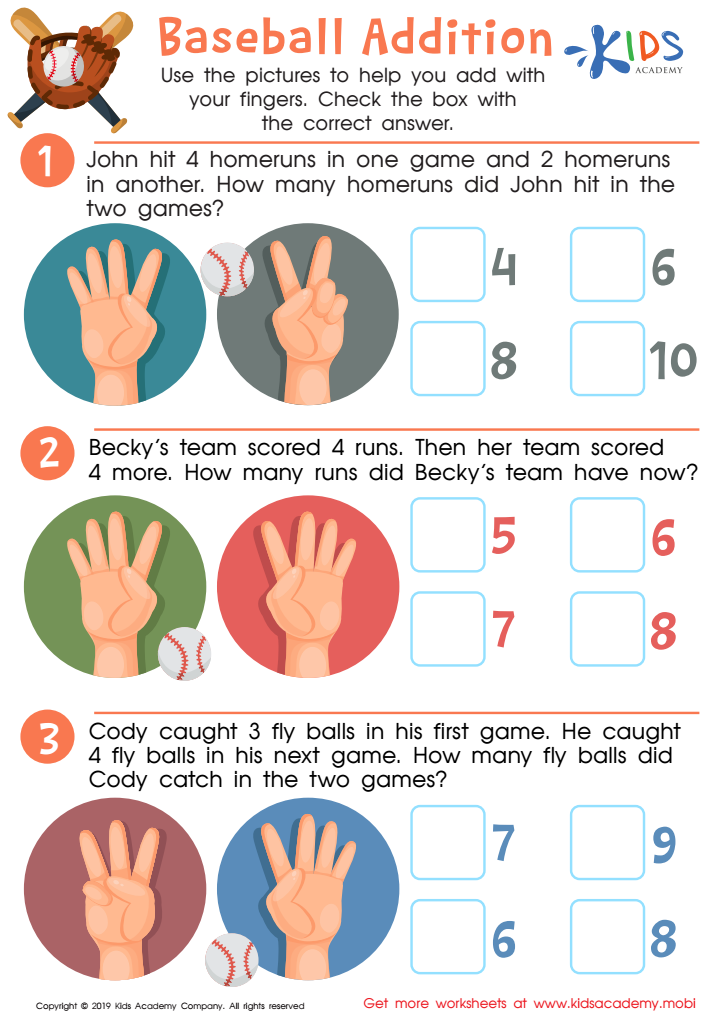

Baseball Addition Worksheet
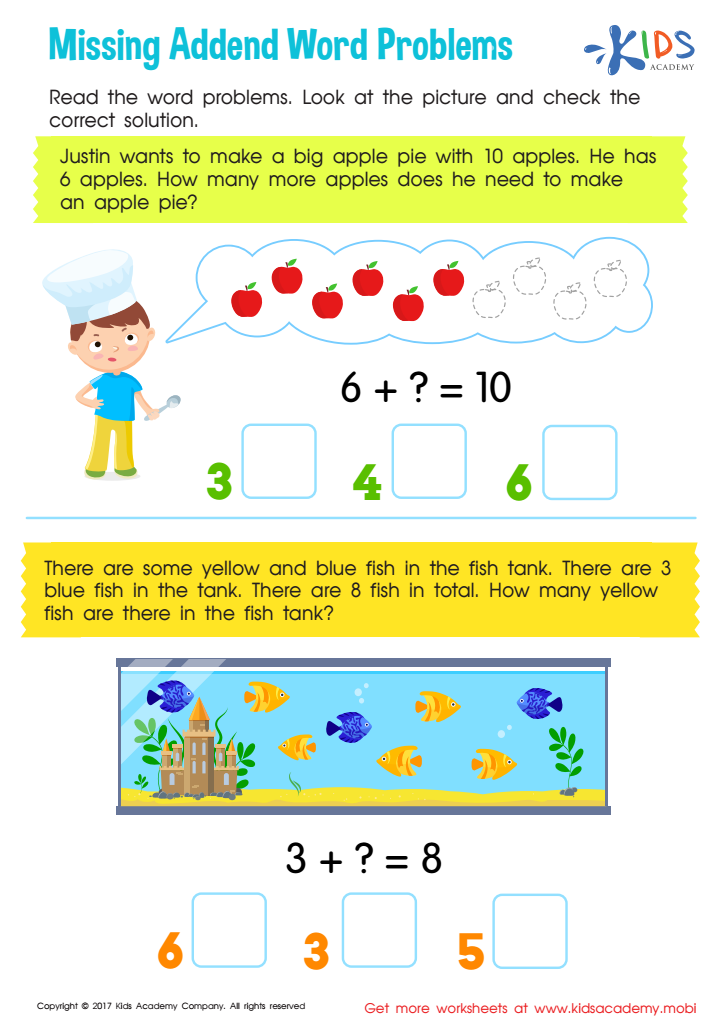

Missing Addend Word Problems Worksheet
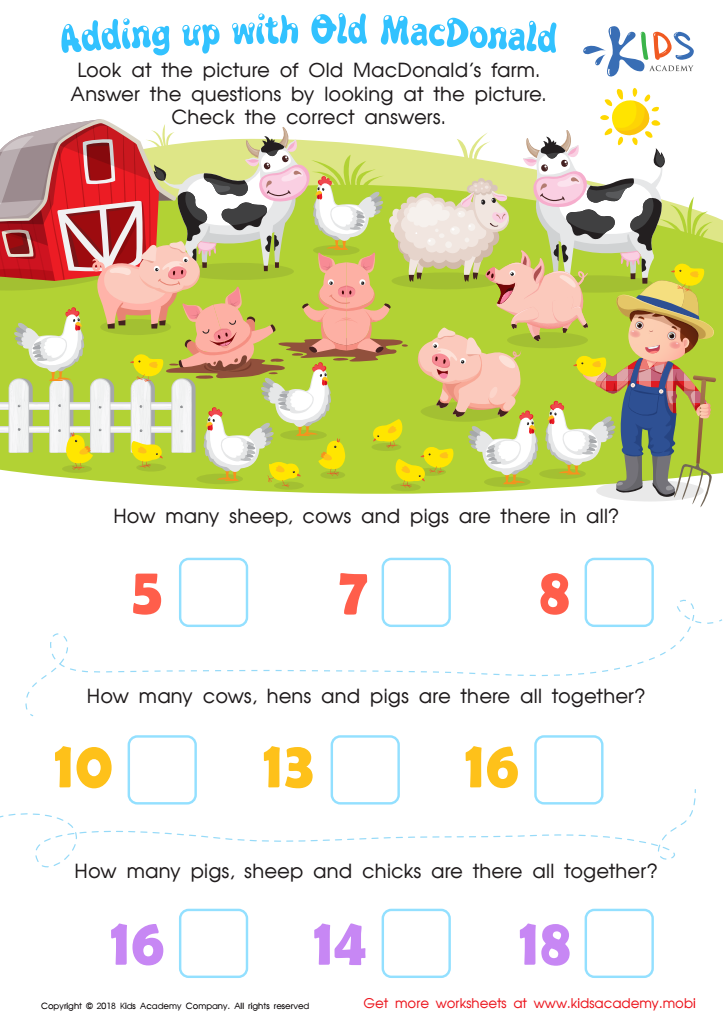

Adding Up with Old MacDonald Worksheet
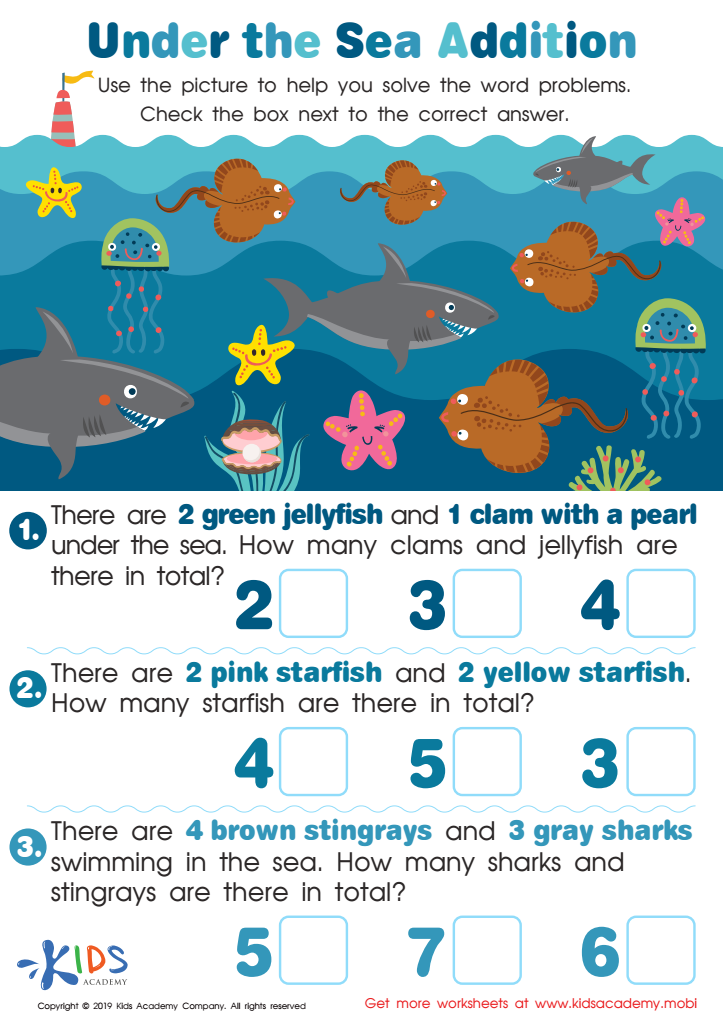

Under the Sea Addition Worksheet
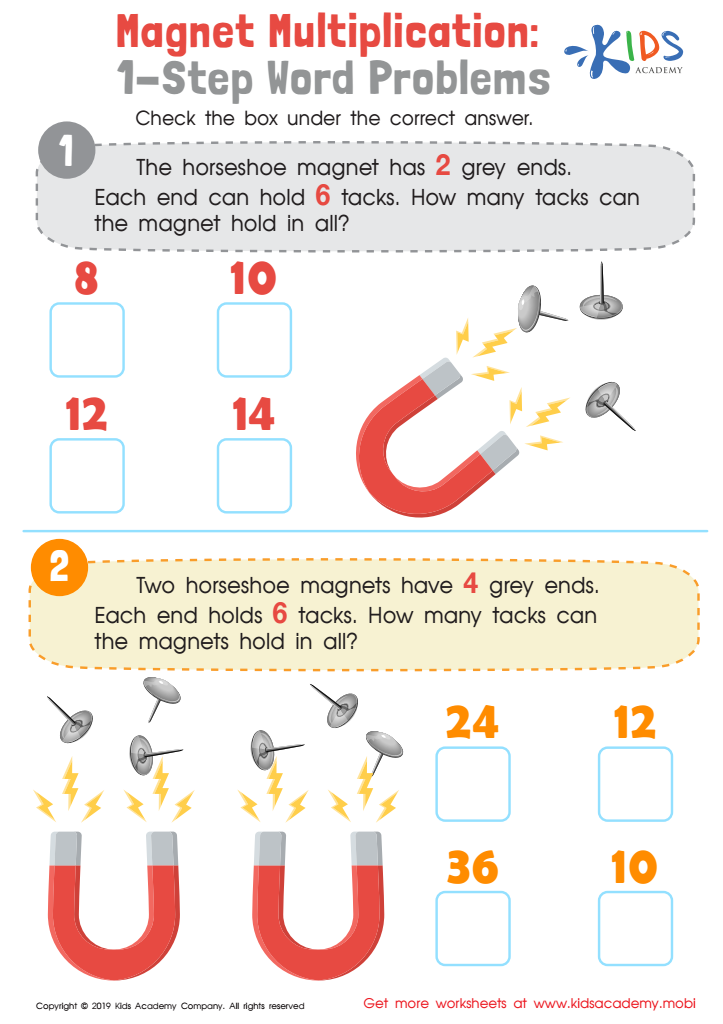

Magnet Multiplication: 1-Step Word Problems Worksheet
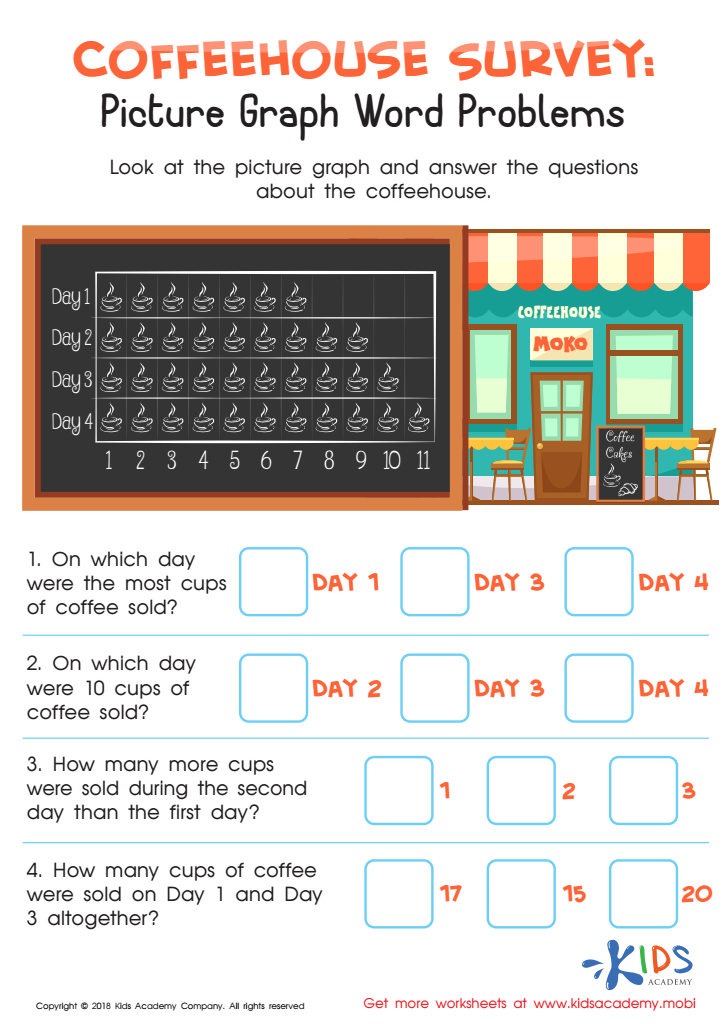

Coffeehouse Survey: Picture Graph Word Problems Worksheet
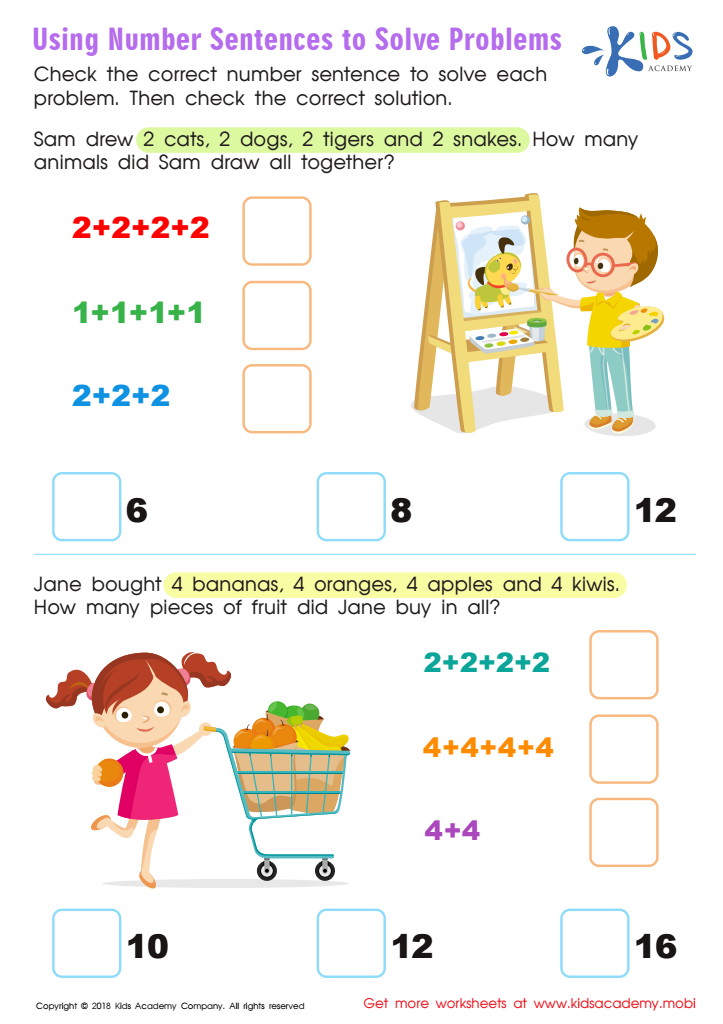

Using Number Sentences to Solve Problems Worksheet
Parents and teachers should prioritize Easy Word Problems for ages 3-8 for several compelling reasons. Firstly, these problems encourage early mathematical thinking. Engaging young learners in simple, relatable word problems helps them connect math to real-life situations, laying a strong foundation for future problem-solving skills. At this age, children's cognitive abilities are rapidly developing; thus, presenting math in an enjoyable way fosters a positive attitude towards the subject.
Moreover, word problems sharpen critical thinking and comprehension skills. Young learners must comprehend the context of a situation, identify relevant information, and determine the appropriate operations to find solutions. This practice supports the development of literacy skills, as children learn to parse language and improve vocabulary.
Furthermore, early exposure to math builds confidence. When children succeed in solving easy problems, it boosts their self-esteem and encourages a growth mindset. Parents and teachers can use these problems to identify individual learning styles and areas needing improvement, enabling tailored support.
In summary, incorporating Easy Word Problems into early education nurtures mathematical understanding, sharpens critical thinking skills, fosters a love for learning, and builds confidence—all essential components for lifelong academic success.
 Assign to My Students
Assign to My Students







.jpg)














